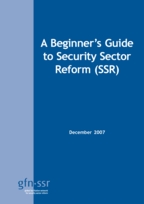INTRODUCTION
This report was developed within the framework of the “Program on Security Sector Reforms in Latin America and the Caribbean” by the Security and Citizenship Program of the Latin American School of Social Sciences (FLACSO), Chile Office. This project seeks to comparatively analyze reforms in the Security Sector of twenty countries in the region. In addition to the assessment that will be realized in the first year of the program, we are interested in offering a description of the principal characteristics of the Security Sector in each of the countries involved.
This report is dedicated to the case of Jamaica. It considers the following four key elements: (i) the political and socioeconomic context of the county, with the aim of offering a portrait of the current situation; (ii) characteristics and recent changes in the Defence sector, focusing on a description of the institutionalization, civilian oversight, external control, general attributes of the Jamaica Defence Force, the Defence budget and reform process; (iii) the Public Security sector, with regard to the institutional setting, the Jamaica Constabulary Force, as well as the reform and modernization process; (iv) and the intelligence organizations of the sector.
It was produced by means of publicly accessible secondary sources, such as legal documents, statistics, official websites, among other publications. In this context, we would like to thank Anthony Harriott, Senior Lecturer at the University of the West Indies, Jamaica, and member of the “Caribbean Task Force on Crime and Security,” who addressed many of the issues discussed and provided essential information on the state of the Security sector in Jamaica. Carsten-Andreas Schulz, intern at FLACSO-Chile, was responsible for writing this report.
We are confident that our effort will contribute to progress in analysis, academic debate and public policy-making in Jamaica. We also hope that this report will help to shed light on a fundamental issue in the ongoing democratization process in Latin America and the Caribbean. Finally, we would like to express our thanks to the Open Society Institute for its financial support, as well as the Organization of American States for its sponsorship.
Full Text: DOWNLOAD PDF









